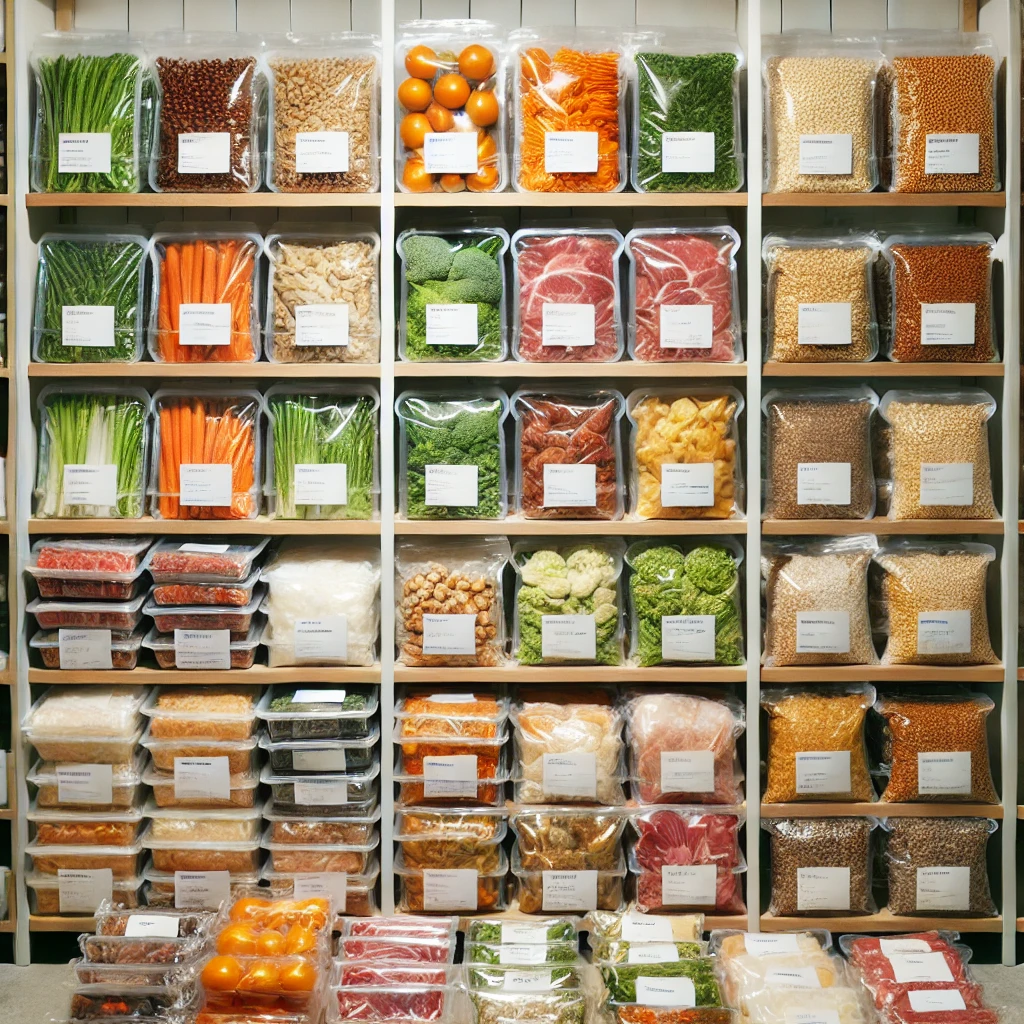A Weekly Food Supply: Fueling Health and Happiness
Introduction
In our fast-paced world, maintaining a balanced diet can feel like a daunting task. Enter the concept of a weekly food supply—a proactive approach to ensuring that you have all the nutrients you need to thrive throughout the week. This structured system not only simplifies meal preparation but also encourages healthier eating habits and reduces food waste. In this article, we’ll explore the components of a weekly food supply, how to effectively plan and organize your groceries, and the myriad benefits that come with it.

The Essential Components of a Weekly Food Supply
A well-thought-out weekly food supply includes a variety of food items from essential food groups. By focusing on these components, you can ensure a balanced diet that supports your nutritional needs. Here are the key food groups to consider:
1. Fruits: Fresh, frozen, or canned, fruits add essential vitamins and minerals to your diet. Aim to include a variety of colors and types. Some popular options are:
- Apples and bananas for snacking
- Berries for breakfast or desserts
- Citrus fruits for a vitamin C boost
2. Vegetables: Like fruits, a mix of vegetables will provide your body with necessary nutrients and fiber. Consider:
- Leafy greens like spinach and kale for salads
- Root vegetables such as carrots and potatoes for roasting
- Cruciferous vegetables like broccoli for steaming
3. Grains: Whole grains provide essential carbohydrates, which are crucial for energy. Include:
- Brown rice or quinoa as a wholesome base for meals
- Whole-grain bread for sandwiches and toast
- Oats for a nutritious breakfast option
4. Proteins: Vital for muscle and overall health, incorporating a variety of proteins is essential. Options include:
- Lean meats like chicken or turkey
- Legumes such as lentils and beans for plant-based proteins
- Dairy products, or alternatives, like yogurt and cheese
5. Fats: Healthy fats are important for brain health and energy. Choose:
- Avocados for healthy fats and taste
- Nuts and seeds as snacks or toppings
- Olive oil for cooking and dressings
Planning Your Weekly Food Supply
Creating a weekly food supply can initially seem overwhelming, but with a few strategic steps, it can transform into an enjoyable activity. Here’s a helpful approach to planning:
1. Assess Your Inventory: Before heading to the store, check what you already have at home. This helps minimize waste and ensures you only purchase what you need.
2. Set a Budget: Determine how much you’re willing to spend on groceries. Keeping track of your expenses can help you make informed choices while shopping.
3. Meal Plan: Draft a simple meal plan for the week, considering your food groups. For example:
- Monday: Stir-fried vegetables with chicken and brown rice
- Tuesday: Lentil soup with whole-grain bread
- Wednesday: Baked salmon with quinoa and steamed broccoli
- Thursday: Omelettes with mixed greens
- Friday: Homemade pizza with assorted toppings
- Saturday: Grilled vegetable wraps with avocado
- Sunday: Smoothie bowl for breakfast, using up leftover fruits
4. Create a Shopping List: Break down your meal plan into a detailed shopping list, categorized by food group, to streamline your grocery shopping experience.
5. Prepare and Store: Once you have your weekly supply, take some time to organize your ingredients. Prepping fruits and veggies and storing them in clear containers can encourage healthier snacking throughout the week.
Benefits of a Structured Weekly Food Supply
The advantages of having a structured weekly food supply are numerous and impactful. Here are some benefits you can expect:
- Improved Nutritional Intake: With a variety of food groups at your disposal, you’ll receive a well-rounded mix of nutrients, enhancing your overall health.
- Time and Money Savings: Planning and organizing your meals in advance can save you both time and money by reducing impulsive purchases and food waste.
- Better Eating Habits: A regular food supply promotes healthier meal choices, reducing reliance on fast food or takeout during busy weeks.
- Increased Family Engagement: Involving family members in meal planning and preparation can foster stronger relationships and create opportunities for shared experiences.
Conclusion
A weekly food supply is a fabulous strategy for maintaining a balanced diet and enhancing overall well-being. By organizing your meals and grocery shopping, you can enjoy a variety of nutrient-rich foods while saving time and money. As you embark on this journey towards healthier eating, remember that each step taken is one toward a happier, healthier you. So, stock up your pantry, gather your loved ones, and get ready to savor the delicious adventures that a weekly food supply can bring!
“Read also: Tips for Choosing Fresh Ingredients for Your Recipes for more knowledge about the kitchen”
